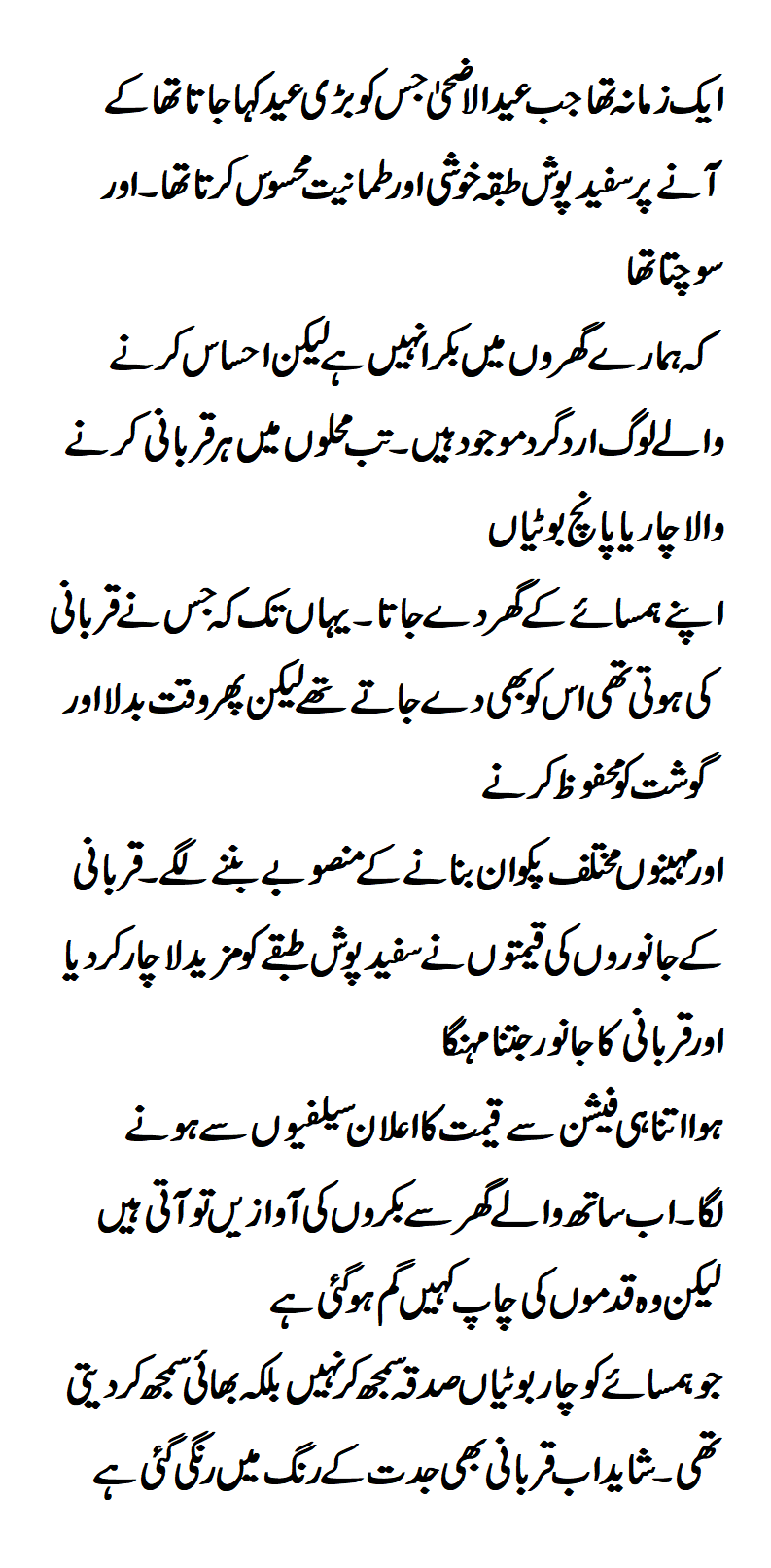Eid al-Adha (Arabic: عيد الأضحى, romanized: ʿĪd al-ʾAḍḥā, lit. ‘Holiday of the Sacrifice’ is the second and bigger of the two main holidays celebrated in Islam (the other being Eid al-Fitr). It honors the willingness of Ibrahim (Abraham) to sacrifice his son Ismail (Ishmael) as an act of obedience to Allah’s command. Before Ibrahim could sacrifice his son, however, Allah provided him with a lamb which he was supposed to kill in his son’s place because of his willingness to sacrifice his own son in the name of God. In commemoration of this intervention, animals are ritually slaughtered. Part of their meat is consumed by the family which offers the animal, while the rest of the meat is distributed to the poor and the needy. Sweets and gifts are given, and extended family members are typically visited and welcomed. The day is also sometimes called the Greater Eid.
The Arabic word عيد (ʿīd) means ‘festival’, ‘celebration’, ‘feast day’, or ‘holiday’. It itself is a triliteral root عيد with associated root meanings of “to go back, to rescind, to accrue, to be accustomed, habits, to repeat, to be experienced; appointed time or place, anniversary, feast day.”Arthur Jeffery contests this etymology, and believes the term to have been borrowed into Arabic from Syriac, or less likely Targumic Aramaic.
The holiday is called عيد الأضحى (Eid-ul-Adha) or العيد الكبير (Eid-ul-Kabir) in Arabic.The words أضحى (aḍḥā) and قربان (qurbān) are synonymous in meaning ‘sacrifice’ (animal sacrifice), ‘offering’ or ‘oblation’. The first word comes from the triliteral root ضحى (ḍaḥḥā) with associated meanings of “immolate ;

offer up ; sacrifice ; victimize.”No occurrence of this root with a meaning related to sacrifice occurs in the Qur’an but in the Hadith literature. Arab Christians use the term to mean the Eucharistic host. The second word derives from the triliteral root قرب (qaraba) with associated meanings of “closeness, proximity… to moderate; kinship…; to hurry; …to seek, to seek water sources…; scabbard, sheath; small boat; sacrifice.”Arthur Jeffery recognizes the same Semitic root, but believes the sense of the term to have entered Arabic through Aramaic.The word is still used by Aramaic Christians for the Communion service, see Eucharist above. Compare Hebrew korban קָרבן (qorbān).